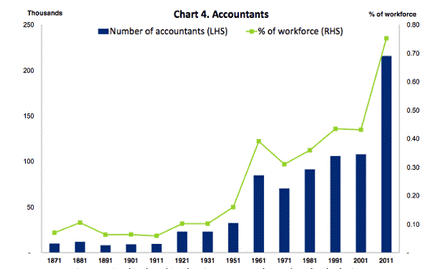
The place of AI in the digital business in Bulgaria
1. The current state of AI in Bulgaria
2.The benefits of AI in digital business
3. Challenges to the adoption of AI in Bulgaria
Krasimir Atanasov

Artificial Intelligence (AI) is transforming the way businesses operate and interact with their customers. In the context of Bulgaria, AI presents a vast opportunity for individuals and businesses to grow and develop.
The high-tech industry in Bulgaria has seen significant growth in recent years, with the ICT sector leading the way as one of the the fastest-growing sectors in the country. According to a report by Invest Bulgaria Agency, the ICT sector has grown by 17.5% between 2014 and 2018, driven by the growth of software development, IT services, and digital content creation.
The current state of AI in Bulgaria
The AI industry in Bulgaria has experienced rapid growth in recent years. This growth is a result of a combination of factors, including the country's highly educated workforce and supportive government policies. Bulgaria has a thriving tech scene, with a strong emphasis on software development and data analytics. The country has become an attractive destination for foreign investors and companies, who are looking to take advantage of its skilled workforce and low operating costs.
Key players in the AI industry The AI industry in Bulgaria is home to a number of innovative companies, including Alcatraz AI, which develops access control solutions using AI and analytics. Other notable companies include SiteGround, DeepMind, and Amazon Web Services, which have set up software development centers in the country. These companies are helping to drive innovation and growth in the AI industry in Bulgaria
Challenges to the adoption of AI in Bulgaria
One of the biggest challenges facing the adoption of AI in Bulgaria is the inability to provide enough experiences or skilled professionals in the field. As a small country we are naturally not able to provide huge work forces to match needs of large companies in the field like Microsoft or google, AI requires a high level of expertise in mathematics, computer science, and statistics, and there are currently not enough trained professionals to meet the demands of the industry. This shortage of skilled workers is making it difficult for companies to implement AI technology and keep up with the pace of technological advancements given the need to either compromise with the quality of personnel or highly increase benefits. Such shortcomings have, quite optimistically, been turned into opportunities by companies providing out of University professional education and courses in topics like AI and programming in general. SoftUni and Telerik are two prominent tech companies based in Bulgaria. SoftUni is a leading provider of IT education and training, offering a wide range of courses and certifications in software development and related fields. Telerik (Academy), on the other hand, is a multinational software company specializing in developing and marketing tools for web, mobile, and desktop application development. Both companies have established a strong reputation in the industry and offer services in training and education related to most digital fields. Another challenge to the adoption of AI in Bulgaria is privacy and security concerns. With AI being a rapidly growing technology, there are concerns about the potential misuse of data, cyber attacks, and privacy violations. These concerns have led to increased regulations and restrictions on the use of AI, making it difficult for companies to invest in the technology. Additionally, limited investment in AI by companies and the government has also been a hindrance to the adoption of AI. This has resulted in limited resources and funding for research and development, which is essential for advancing AI technology. Finally, cultural resistance to AI is another challenge to its adoption in Bulgaria. AI technology can disrupt traditional business models and change the way work is done, which can lead to resistance from employees and other stakeholders. This cultural resistance can be difficult to overcome and can slow down the pace of adoption of AI technology in the country. Throughout history, the introduction of new technologies has often created more job opportunities and economic growth, rather than replacing jobs. As companies modernize and adopt new technologies, such as AI, it leads to increased efficiency and productivity, creating new positions that demand different skills and competencies. As the workforce adapts to these changes, it can lead to higher wages, greater job security, and a more dynamic job market. Therefore, the integration of AI in companies should not be viewed as a threat to job stability, but rather as an opportunity to upgrade the workforce and create new job opportunities in a rapidly changing world.
Accounting tasks would be one of the most influences by automatization, with AI and other software saving and decreasing time for processed by a huge margin, yet jobs are increasing as a total number. More Info on:https://www.theguardian.com/business/2015/aug/17/technology-created-more-jobs-than-destroyed-140-years-data-census
